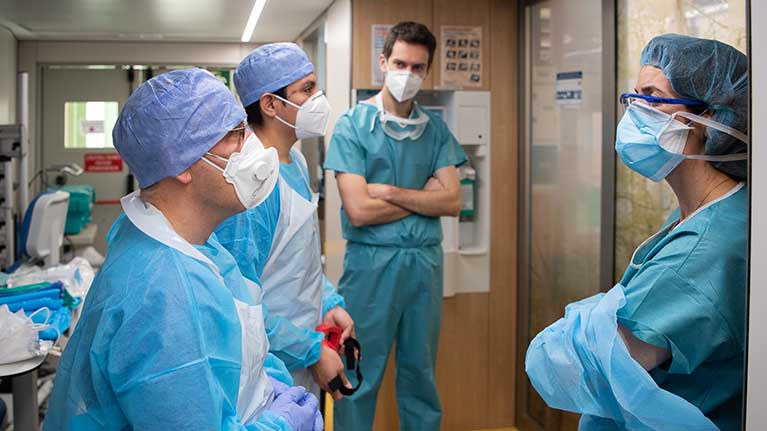Health Care Workers Still Face Daunting Shortages of Masks and Other P.P.E.
Frontline medical personnel in hospitals and nursing homes are urging the incoming Biden administration to use the Defense Production Act to increase manufacturing of personal protective equipment.
As Americans celebrate the rollout of a coronavirus vaccine, many of the doctors and nurses first in line for inoculation say a victory lap is premature. They fear that the optimism stirred by the vaccine will overshadow a crisis that has drawn scant public attention in recent months: the alarming shortage of personal protective equipment, or P.P.E., that has led frontline medical workers to ration their use of the disposable gloves, gowns and N95 respirator masks that reduce the spread of infection.
At St. Mary’s Medical Center in Duluth, Minn., health care workers who treat Covid-19 patients are required to reuse their tightfitting respirator masks up to six times before throwing them away. Although soiled N95s are sterilized each day with ultraviolet light, Chris Rubesch, 32, a cardiac nurse, says the masks invariably sag after two or three shifts, leaving gaps that can allow the virus to seep through. “Our days are filled with fear and doubt,” Mr. Rubesch said. “It’s like driving a car without seatbelts.”

Health Care Workers Still Face Daunting Shortages of Masks and Other P.P.E.
Many of the shortages are the result of skyrocketing global demand, but supply chain experts and health care providers say the Trump administration’s largely hands-off approach to the production and distribution of protective gear over the past nine months has worsened the problem. That has left states and hospitals to compete for limited supplies. Price gouging has become the norm, and scores of desperate institutions have been duped into buying counterfeit products.
President Trump has made only sparing use of the Defense Production Act, a Korean War-era law that allows federal agencies to coordinate the distribution of scarce goods and force companies to prioritize government orders. The D.P.A. can also provide grants to companies that need help ramping up production.
“It’s been an absolute free-for-all, and the federal government has failed to provide any meaningful leadership,” said Scott LaRue, the president of ArchCare, a nonprofit operator of nursing homes in New York State.
Although the vaccine will help protect health care workers from falling seriously ill with Covid-19, it is unclear how long that protection will last and whether vaccinated people will still be able to transmit the virus to others — including patients of all stripes who seek their care.
At Community First Medical Center in Chicago, Kathy Haff, a registered nurse, said employees there are often given N95 masks that don’t fit their faces. She blamed the shortage of appropriate gear for the coronavirus deaths of three nurses at her hospital this past spring and summer.







